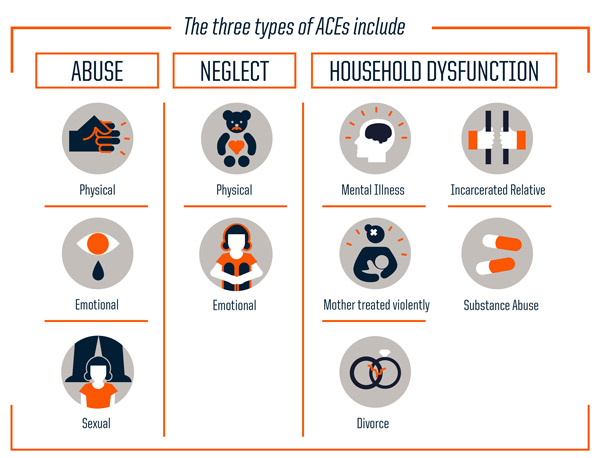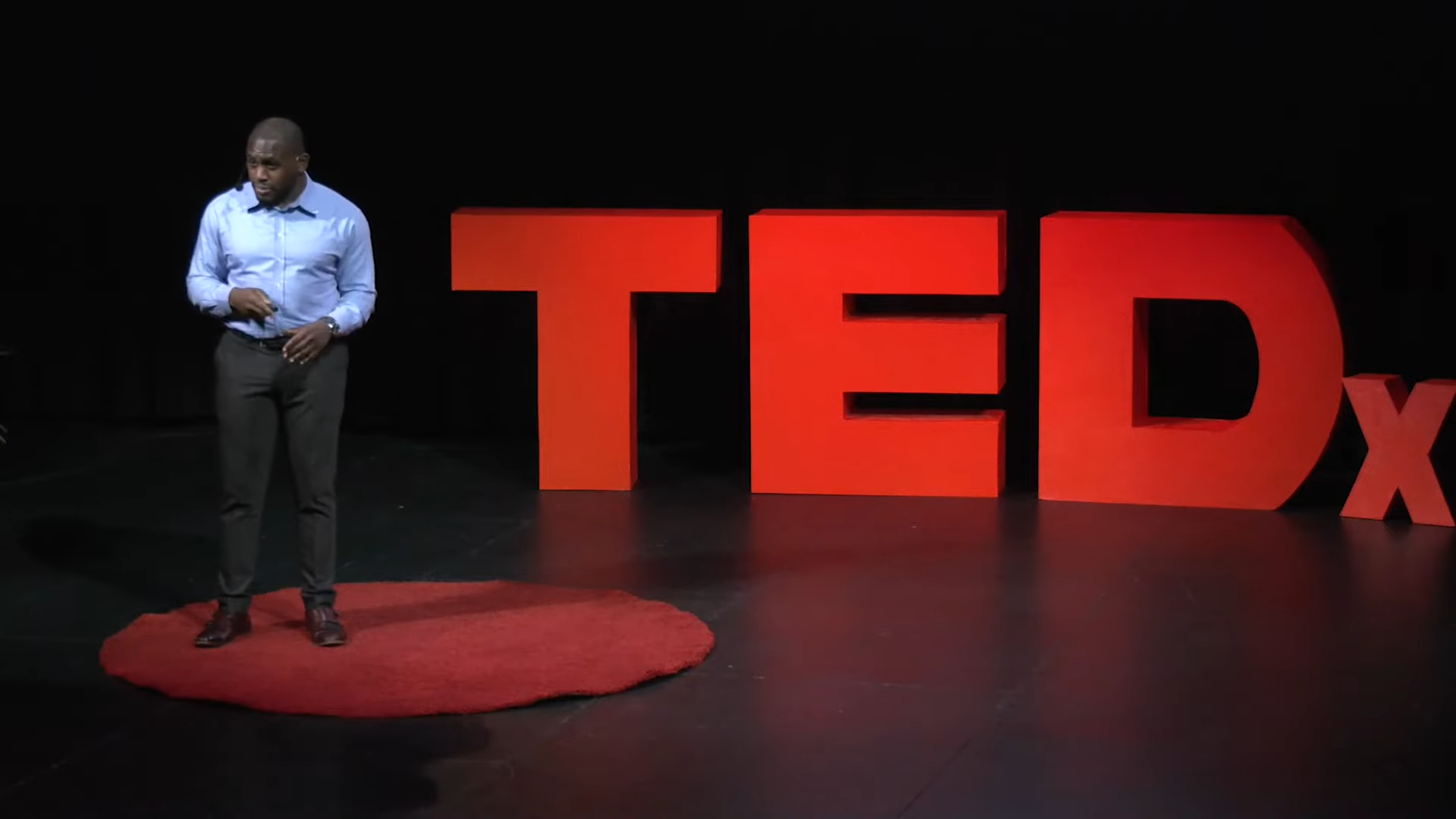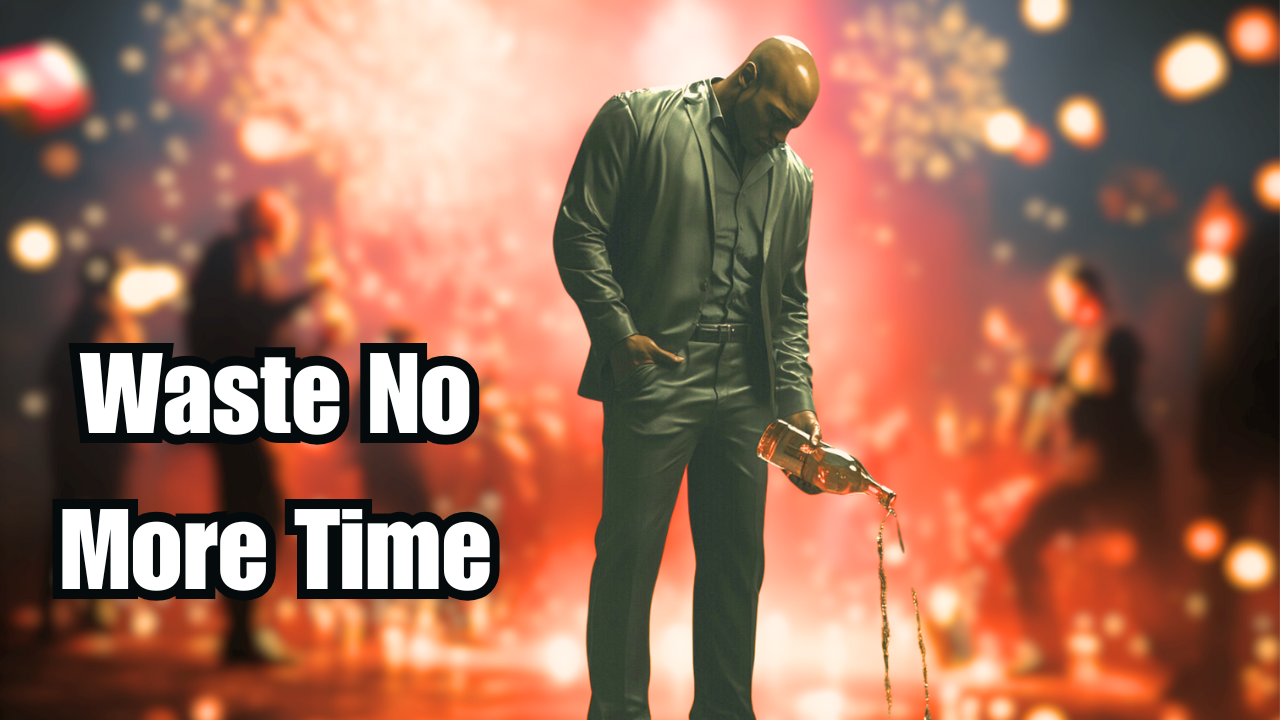I had a rough childhood.
I grew up as a typical stereotype.
I was a black kid, of a single mother, who lived in public housing. And for those of you who don’t know, the public housing system is also known as the hood, the projects, or the ghetto.
[Learn more about my experiences in the ghetto here—>5 things I learned growing up in the projects]
From a young age, I saw a lot of violence, drug dealing, substance abuse, neglect, and other behavior that is degrading to the human experience. This is an environment where it’s hard to have hope. That was just the neighborhood I grew up in. My home environment was just as bad.
But my home life was also a traumatic experience.
Because of physical and emotional abuse, I never felt safe at home. In fact, when I got to high school (one across town, 20 minutes away by car and an hour away by bus, in a completely different socioeconomic class), I spent as little time at home as possible. I played 3 sports, always had a job, or went to my friend’s house nearly every day after school.
Before then, school wasn’t a place I looked forward to going to either.
Because I went to school in the same neighborhood with the same people, the same attitudes and problems were there as well. In fact, I remember that middle school has the proud distinction of being the first public school in the city to have metal detectors. I was in a lot of fights before the age of 14.
All of these things come together to form an environment that ruins many lives.
Adverse childhood experiences. How a tough childhood typically ruins lives
Leo Tolstoy once famously wrote, “All happy families are alike; each unhappy family is unhappy in its own unique way.” What he meant by this is that the things that make a family (and by extension, the children in that family) happy are typically the same. However, when things go wrong, it can be for any number of reasons.
Adverse child experiences are potentially traumatic events that occur when someone is a child. These are categorized as neglect, abuse, or general home dysfunction.

When looking at the United States prison population, a recent study shows that 97% of them have had at least one adverse childhood experience, with 78% of them having experienced 4 or more. Compare this to the generation population where only 64% have had at least one adverse childhood experience, with only 15% having experienced 4 or more.
[Check out the heartbreaking stats of adult prisoners who suffered through adverse childhood experiences—>here]
Even if they don’t even up in prison, we know that victims of childhood trauma are more likely to have lower self-esteem, mental health issues, suffer from obesity, abuse drugs, and suffer financial difficulties in their adult life.
There’s a reason why kids who grow up in that environment are considered “at-risk youth”. However, not all who come from this environment end up in prison or with a lower quality of life.
Just because some survive doesn’t mean it’s survivable
The same water that softens the potato hardens the egg. In a hellish environment like this, there is the potential for growth and from that growth, there are a lot of benefits that can be gained.
I learned certain lessons in that environment that I couldn’t learn anywhere else. If I had had a normal childhood, I don’t think I would be the person I am today. In fact, I know I wouldn’t.
[What I’m describing are street smarts. I wrote how to develop them in this article here—>8 ways to be more street smart]
I don’t want to give you the idea that this environment is somehow the key to success.
Survivors’ bias can give a distorted view of the way things really are. If you only look at people like me, who came from that environment, without considering what I went through and all the times I nearly ruined myself, you might think it’s good that experienced that.
I came away with certain advantages. And a lot of disadvantages.
In this article, I’ll break down everything I learned coming from a rough childhood that I think has set me up for success today.
The 7 benefits of having a rough childhood
You’re resilient
When you come from this type of environment, you’re resilient. This means that you’re able to take the abuse of reality and continue moving through it towards your goals. You’re the kind of person that can get knocked down 7 times and get up 8.
People who grow up in a stable home and with functional family members are protected from the harshness of the world. By the time they encounter it, it can be quite a shock to their system and way of viewing the world.
However, one of the hallmarks of a rough childhood is that it’s forced you to function in a harsh environment. This is a place with no safety net if you fall and where no one is coming to save you if you fail.
This comes in handy when it comes to dealing with the tougher parts of life.
I’ve always been able to work without complaining because I grew up with the idea that complaining didn’t help. If anything, complaining about my situation just made me angrier and did not get me any closer to fixing it.
You know what it’s like to lose, you know what it’s like to suffer. And while that may seem miserable as a child, this sets you apart from a lot of your peers, who are weak because they never had to be strong.
You have seen the worst of humanity. You’ve seen the horrors of poverty, poor discipline, and poor choices. You still get on with the business of living and making something of yourself.
You have empathy
You’re going to have greater empathy.
Now, this doesn’t mean that it gets used, because many from this environment come out so tough that we have psychopathic tendencies. However, that’s merely an adaptation to protect ourselves from the harsh environment we grew up in.
Because a kid from this environment intimately knows pain, they’re uniquely attuned to what hurts people. It’s going to be easier for them to put themselves in the other person’s shoes.
I hated the idea of teasing a kid because I knew what it was like to be teased and bullied. Kids would show up to my house? One time they threw my jacket in the toilet. I had to figure out how I would get home in the dead of winter with this jacket that was soaked in the toilet water.
I hate the abuse of power. I knew how miserable the constant pain and threat of violence for just being me was. That made me sensitive to the plight of other people. It’s made me many friends and allies because I’m interested in seeing how I can help someone instead of manipulating, controlling, or intimidating them.
You are resourceful
Resourcefulness is another huge advantage kids coming from this environment have because they never had the proper resources to succeed. In fact, I rarely had any support at all to make it through challenging situations.
But yet I’m still here.
I know how to do more with less because I always had less. I figured out how to feed myself and pay my bills with less money. I became a problem solver because I had no choice.
You’re not afraid to take risks
When you come from the bottom, everything is a come-up. When you come from instability, everything is stability. When you come from degradation, everything is an improvement.
Kids from broken homes aren’t afraid to take risks to gain more because they have nothing to lose. The average person does not like to take risks, even if it’s a risk that can result in a better situation with more opportunities.
Many of my friends couldn’t understand why I chose to start boxing at the age of 22. That seemed too risky and dangerous for them to imagine. But to me, it was something that changed my life and gave me far more opportunities in my life.
A great thing about coming from the bottom is that you aren’t in the middle. At best, the middle can be a place of equilibrium and comfort, and at worst, a fight for survival to maintain a certain lifestyle. This means that no matter how a person feels about being middle class, they’re not going to take a risk to disturb that. These people are far more likely to stay on the path of least resistance and least risk.
They won’t let themselves fall out of the lifestyle they grew up in, but they won’t do anything dramatically different that might endanger their stability. Coming from the bottom means that you don’t have this problem. There is no stability or comfort to maintain.
Everything can be improved when you aren’t afraid to take risks.
You don’t have anyone telling you how to live
You don’t have any role models, for better or worse. Usually, this is for the worse. However, there are many instances where it can be beneficial to not have anyone telling you what to do from birth and trying to put you on a specific path.
You’re free to choose what’s important to you.
Growing up, I could never understand some of my friends and their obsession with pleasing their family at the expense of our own personal happiness. Even now, with a lot more experience and perspective, I have a hard time buying into the idea of doing what my family would approve of because I never saw my family as people whose approval to strive for.
I was never obligated to any one particular religion. College wasn’t an expectation for me.
With no expectations other than to not become a statistic, I got to sort out my life path on my own. And I’m not saying that this is ideal or that most people succeed growing up without guidance. I’m just saying that it’s a freedom that many people never get to embrace.
This freedom is one of the things that saved me from majoring in something stupid in college because I didn’t have a stable environment telling me to go to college immediately because “any degree is a good degree.”
It’s easier to be grateful
You know what it’s like to not have. Not only that, you likely know what it’s like to lose what you do have.
Gratitude is simply the appreciation of your current situation and possessions.
This is easier to develop if you know what it’s like to have nothing. Once you have something, you never forget that it could be taken away again. This gives you a great appreciation for the life you have.
It’s not that your life is good or bad. From experience and observation, you just know that it could be a lot worse.
It’s a lot easier to appreciate what you have, the people around you, the little moments, and the good times when you realize how much you have without having much at all.
This is the power of gratitude and it’s a from this type of childhood.
You know that money doesn’t buy happiness
For better or worse, at-risk youth from a rough childhood know that money can’t buy happiness. The best times you’ll have are also going to be the time to your most broke.
I remember growing up, we didn’t have a lot. This is part of living in the projects. It’s part of growing up in a broken home in a tenuous environment. But I had a few good friends and books, and a played outside a lot.
My greatest source of happiness was people and my relationships with them. Buying things is a poor substitute for what actually makes you happy. It’s hard to recognize this when you have nothing and you see people seemingly getting enjoyment from stuff, but eventually, you’ll realize that money—by itself—can’t make you happy.
Money only solves your money problems, and sometimes those are significant enough to affect your quality of life.
— Ed Latimore (@EdLatimore) February 6, 2022
But that's all money buys. Solutions to *money* problems.
It can't make people like, trust, or respect you. It can't buy integrity, dignity, or courage.
This realization means that your money has a far lesser chance of destroying you when you get it. A lot of people get money and try to buy happiness but later realize, often when it’s too late, that this is a trap.
Forming relationships with people is the best thing you can do to be happy. Rapper Jadakiss once said, “I’d rather be broke together rich alone.” This is a guy from the hood who understands his principle better than anyone.
To sum up the 7 benefits of a rough childhood…
You know that life is hard because your life is hard. Therefore, the harshness of the world doesn’t surprise you. You’re used to it. You not only know how to survive but thrive.
You know that money makes life easier but it doesn’t make you happy. Only you can do that because no one is coming to save you.
The rest is up to you.




